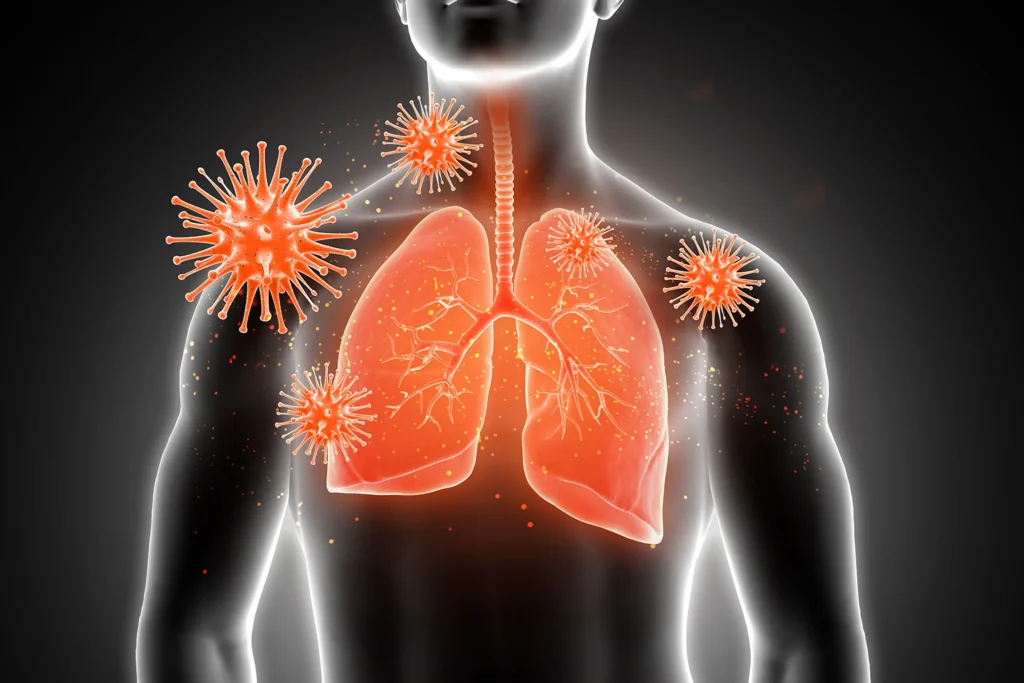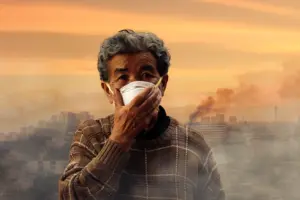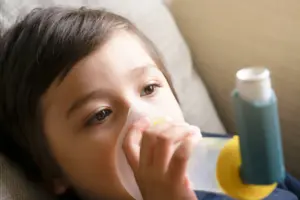
When you think about air pollution, you might picture busy roads, smoke from factories, or thick smog over cities. But did you know that the air inside your home can also be polluted?
Indoor air pollution can be just as harmful or sometimes even more so than outdoor air. You might spend a lot of time indoors sleeping, cooking, relaxing, working, or just spending time with family. So the quality of air inside your home plays a very important role in your health, especially your lungs.
What is indoor air pollution?
Indoor air pollution refers to the harmful substances in the air inside your home or building. These pollutants can come from everyday things like cleaning and cooking. Some common sources of indoor air pollution include cooking smoke and dust, pet dander, mould and mildew, tobacco smoke, and others.
Also Read | Air pollution linked to cancer-causing DNA mutations in non-smokers
How does indoor air pollution impact your lungs?
Your lungs are two soft balloons that fill with air every time you breathe. But when that air contains pollutants, it irritates the airways and also leads to problems like chronic coughing and wheezing. Indoor air pollution can trigger asthma attacks or allergic reactions, especially in kids or older adults. Dust and bacteria in the air can also increase the risk of infections like pneumonia. With time, breathing poor-quality air can reduce how well your lungs work, making it challenging to breathe deeply or feel energetic.
Indoor air pollution: Who is most at risk?
While indoor air pollution impacts everyone, some people are more sensitive to it, like babies and young kids or elderly adults & pregnant women. These groups might notice symptoms more quickly, like sneezing or coughing.

Easy ways to improve indoor air quality
Fresh air helps push out polluted air, so you need to open windows for at least 15 to 30 minutes every day, especially while cooking or cleaning. Turn on exhaust fans while cooking to eliminate smoke and odour. Cigarette smoke is one of the worst pollutants. You need to ensure that your home is a smoke-free zone to protect your lungs and your family’s health. Dust and mould can accumulate quickly; hence, vacuum and clean air filters regularly.
What about air purifiers?
Air purifiers with High-Efficiency Particulate Air (HEPA) filters can especially help you remove dust and smoke from the air. They are beneficial if you have allergies or asthma, or if you live in a city or near traffic areas. Choose an air purifier that fits the size of your room, and change the filters regularly for the best results.
Also Read | Long-term exposure to air pollution significantly increases dementia risk: Study
The air you breathe at home matters more than you might even think. Clean indoor air helps you sleep better, breathe easier, and stay healthy. If you have been feeling tired or dealing with constant allergies, your home’s air quality might be to blame. The good news is you can take control of it.








